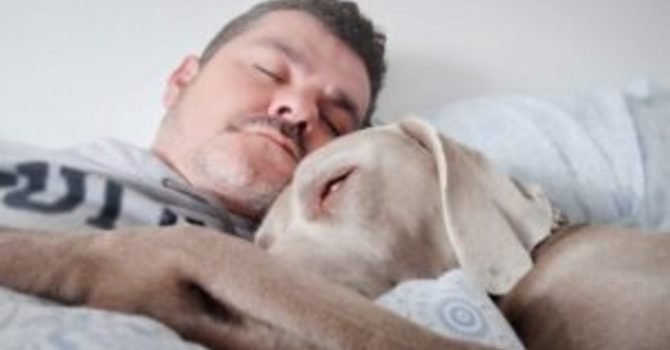
It’s becoming more and more evident that the main function of sleep is that it appears to be the only time that your brain receives a “deep cleaning”, in order to stay healthy. All the intra and extra-cellular waste and proteins which accumulate, are flushed out by different clearing systems throughout the day; however, these clearing systems only work half as well during your time awake. Deep sleep is required to kick these clearing systems into high gear. Alzheimer’s disease and its relationship to a deficiency in these clearing systems, is now being closely studied.
The different components of these clearing systems are as follows:
- Blood-brain barrier
- Recently discovered lymphatic system in the meninges (meninges are a covering around your brain and spinal cord)
- Recently discovered glymphatic system (like the body’s lymphatic system, but specific to brain cells called glial cells)
- Cerebrospinal fluid (the fluid in which your brain and spinal cord floats)
Before we look into improving our sleep, let’s look at the amount of sleep required per age. The following, are the recommendations of the Centers for Disease Control and the Sleep Foundation:
Practical tips for Improving Sleep:
- Keep a regular sleep schedule – Sleep is improved when we go to bed and wake up around the same time everyday. This helps to keep your circadian cycle regular.
- Create an environment conducive to restful sleep in your bedroom:
- Control outside noise as much as possible.
- Use heavy curtains and floor rugs that help to absorb sound.
- If sound can’t be cancelled out, use white noise or play soothing sounds like ocean waves or raindrops in the background.
- Dim any bright lights.
- Create a comfortable sleeping temperature (not too cold and not too hot). Studies have found that most do well at 65° F.
- Incorporate relaxation techniques before going to bed such as:
- Mindfulness meditation
- Taking a warm epsom salt bath
- Light stretching before bed
- Avoid caffeine completely, or try not taking in caffeine after 2pm.
- Avoid alcohol or a “nightcap” to help you sleep. Although it may help to get you to sleep faster it doesn’t lead to deep restful sleep.
- Avoid tobacco, like caffeine it is a powerful stimulant that can disturb your sleep.
- Take on a regular daily exercise routine; however, avoid exercising two hours before it’s time for bed.
- Avoid eating and drinking two hours before bed. It’s difficult to sleep with a full stomach and acid reflux can be an issue.
- Create a habit of journaling how you’re sleeping to catch anything you may be missing. Jot down the time you went to bed and when you woke up, how rested you feel, and any stressors (medications, food/drink, activity, projects, or worries) that may have disturbed your sleep.
- Magnesium supplementation before you go to bed can help you achieve deeper sleep as well as help your muscles recover from your daily workout. Click here for a great magnesium supplement! (Avoid sleeping pills. They can induce drowsiness, but they don’t produce REM, deep or restful sleep.)
- Stop using electronic devices at least 1 hour before going to bed.
- Musculoskeletal pain and sleep positions:
- Neck pain – Try sleeping with a flat pillow on your back, keeping your neck in as neutral a position as possible. Avoid sleeping on your stomach.
- Lower back pain – Sleep on your back or side with your knees flexed or propped up with a pillow or two, in order to relieve some pressure on your lower back discs.
- Hip pain – Try sleeping on your side with your knee and hip flexed and with a pillow between your legs.
If pain is the reason that you’re losing sleep at night, we are here to help! Contact us at 561-318-8070
References:
Boche, Delphine, and James A.r. Nicoll. “SYMPOSIUM: Clearance of Aβ from the Brain in Alzheimer Disease: The Role of the Immune System in Clearance of Aβ from the Brain.” Brain Pathology, vol. 18, no. 2, 2008, pp. 267–278., doi:10.1111/j.1750-3639.2008.00134.x.
Buysse, Daniel J., et al. “The Pittsburgh sleep quality index: A new instrument for psychiatric practice and research.” Psychiatry Research, vol. 28, no. 2, 1989, pp. 193–213., doi:10.1016/0165-1781(89)90047-4.
“How Much Sleep Do I Need?” Centers for Disease Control and Prevention, Centers for Disease Control and Prevention, 2 Mar. 2017, www.cdc.gov/sleep/about_sleep/how_much_sleep.html.
“National Sleep Foundation Recommends New Sleep Times.” National Sleep Foundation, sleepfoundation.org/press-release/national-sleep-foundation-recommends-new-sleep-times/page/0/1.
Publishing, Harvard Health. “Improving Sleep: A guide to a good night’s rest.” Harvard Health, www.health.harvard.edu/special-health-reports/improving-sleep-a-guide-to-a-good-nights-rest.
©CenterForMusculoskeletalFunction2017






